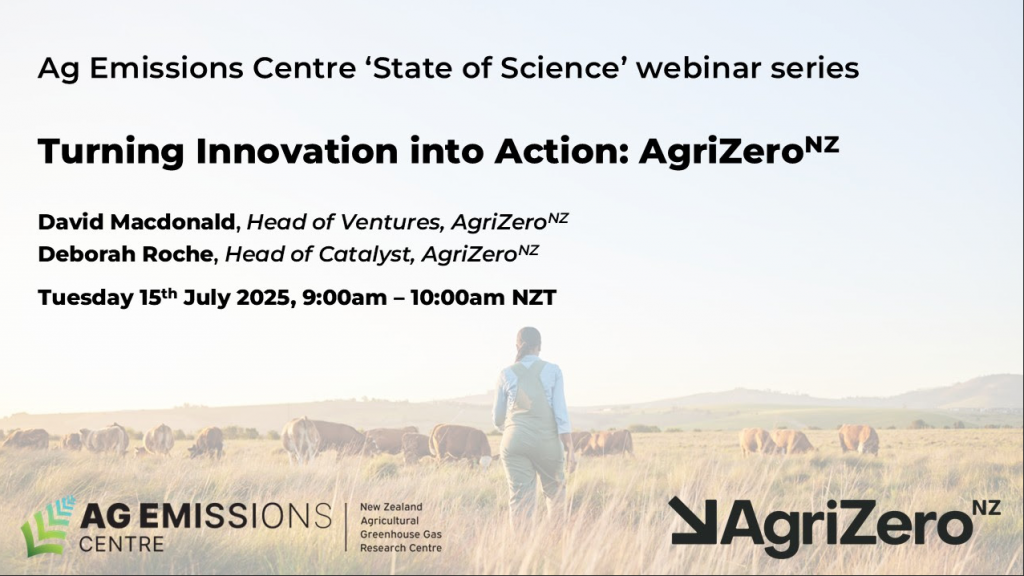
Hear how AgriZeroNZ is turning innovation into action for low emissions agriculture in our upcoming webinar
We are partnering with AgriZeroNZ to give you access to the latest info on their portfolio of investments to provide farmers with a range of tools to reduce emissions without compromising productivity and profitability.
AgriZeroNZ is scanning the world for solutions to reduce biogenic methane and nitrous oxide emissions from ruminant animals and investing in a portfolio of innovative ventures and projects with a shared commitment to helping farmers lead the worldwide advancement of low emissions pasture-based farming.
David Macdonald (Head of Ventures) and Deborah Roche (Head of Catalyst) will present an overview of the current state of play of their investment portfolios. Plus, provide an outline of the flexible combination of funding, strategic advice and market access that AgriZeroNZ offer to accelerate the development and deployment of solutions.
This webinar is part of the 2025 State of Science webinar series and a collaborative effort between the Ag Emissions Centre and AgriZeroNZ.
Don’t miss the chance to gain valuable knowledge from active investors in the field.
This webinar is part of the 2025 NZAGRC State of the Science webinar series and is a collaborative effort between the Ag Emissions Centre and AgriZeroNZ.
Tuesday 15th July 2025, 9.00am to 10.00am NZT
Who should participate?
This webinar is relevant to researchers, farmers, rural professionals, policy advisors and anyone else involved or interested in efforts to reduce greenhouse gas emissions from New Zealand and Ireland’s primary sector.





